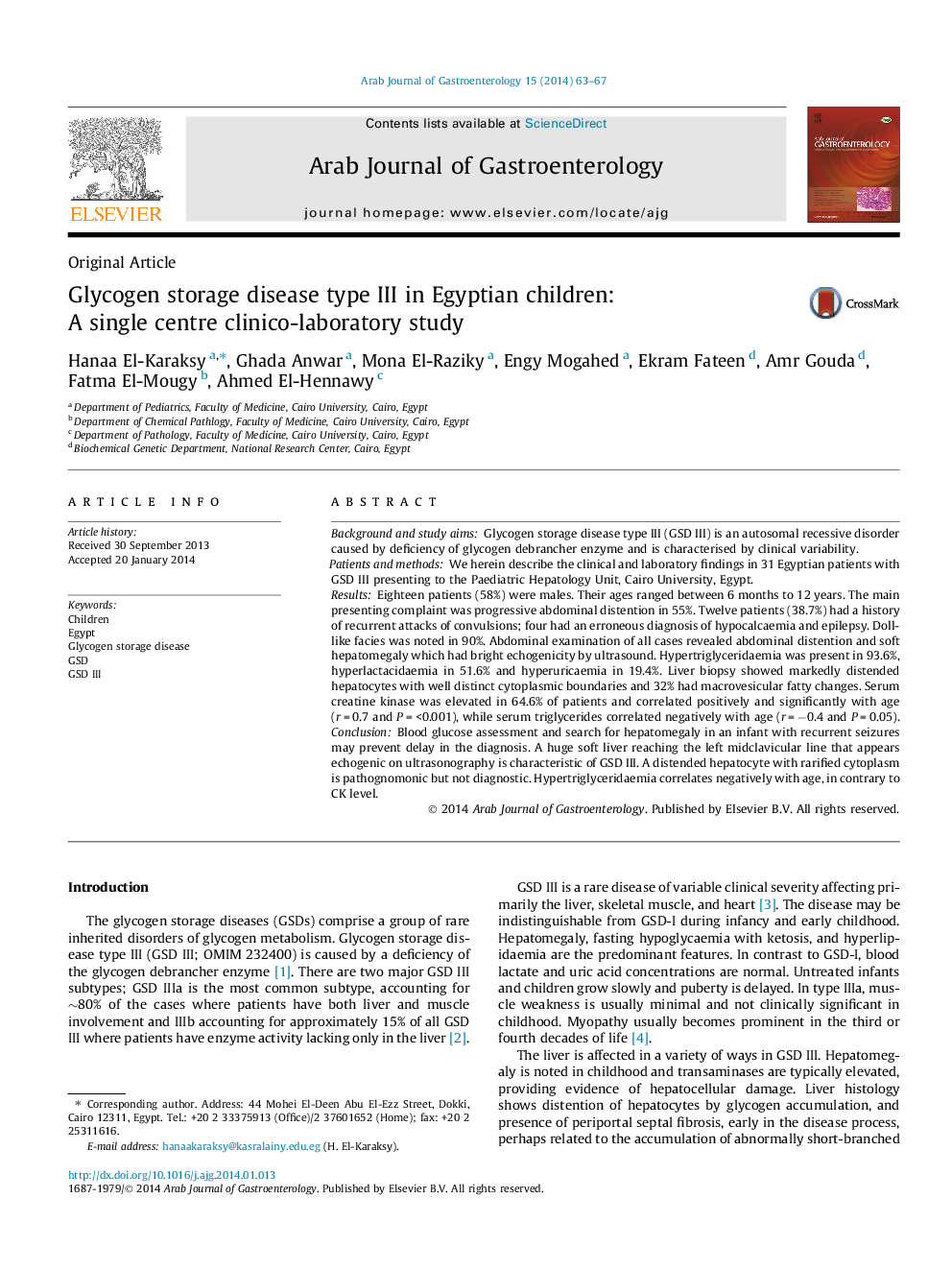| Article ID | Journal | Published Year | Pages | File Type |
|---|---|---|---|---|
| 3280826 | Arab Journal of Gastroenterology | 2014 | 5 Pages |
Background and study aimsGlycogen storage disease type III (GSD III) is an autosomal recessive disorder caused by deficiency of glycogen debrancher enzyme and is characterised by clinical variability.Patients and methodsWe herein describe the clinical and laboratory findings in 31 Egyptian patients with GSD III presenting to the Paediatric Hepatology Unit, Cairo University, Egypt.ResultsEighteen patients (58%) were males. Their ages ranged between 6 months to 12 years. The main presenting complaint was progressive abdominal distention in 55%. Twelve patients (38.7%) had a history of recurrent attacks of convulsions; four had an erroneous diagnosis of hypocalcaemia and epilepsy. Doll-like facies was noted in 90%. Abdominal examination of all cases revealed abdominal distention and soft hepatomegaly which had bright echogenicity by ultrasound. Hypertriglyceridaemia was present in 93.6%, hyperlactacidaemia in 51.6% and hyperuricaemia in 19.4%. Liver biopsy showed markedly distended hepatocytes with well distinct cytoplasmic boundaries and 32% had macrovesicular fatty changes. Serum creatine kinase was elevated in 64.6% of patients and correlated positively and significantly with age (r = 0.7 and P = <0.001), while serum triglycerides correlated negatively with age (r = −0.4 and P = 0.05).ConclusionBlood glucose assessment and search for hepatomegaly in an infant with recurrent seizures may prevent delay in the diagnosis. A huge soft liver reaching the left midclavicular line that appears echogenic on ultrasonography is characteristic of GSD III. A distended hepatocyte with rarified cytoplasm is pathognomonic but not diagnostic. Hypertriglyceridaemia correlates negatively with age, in contrary to CK level.
